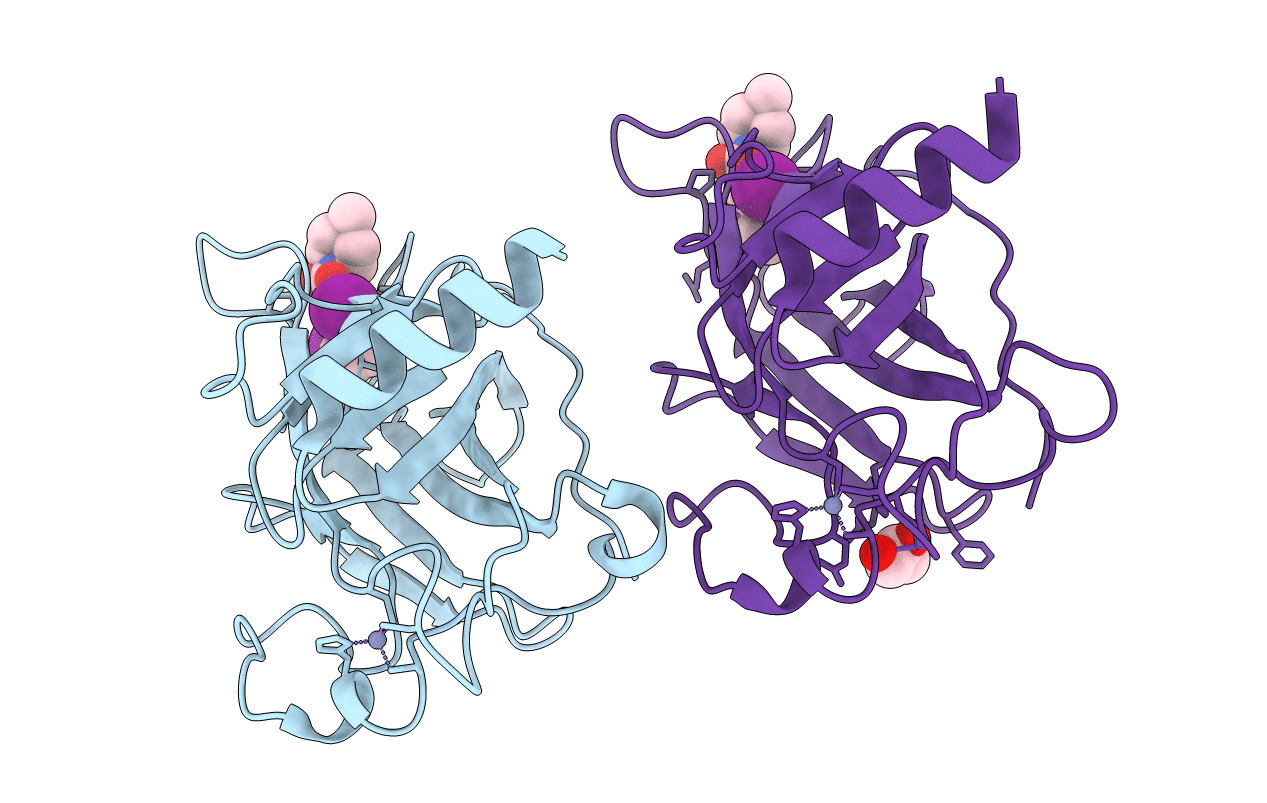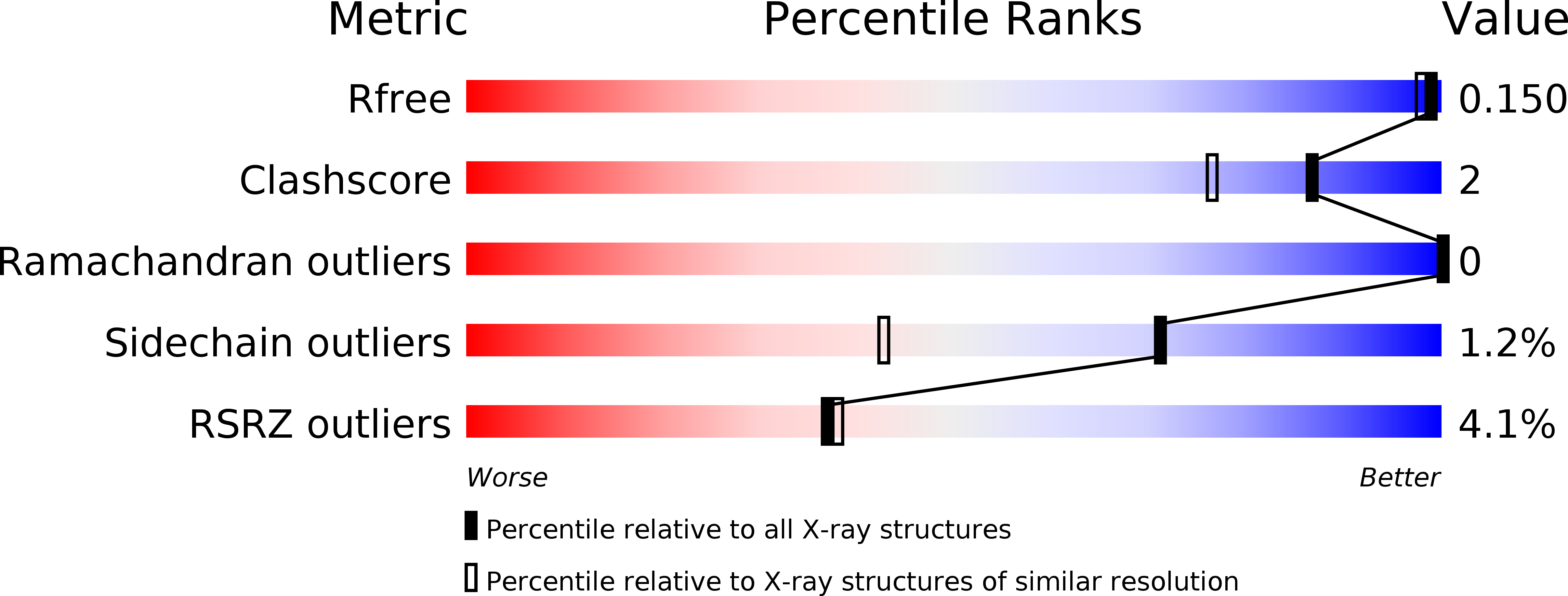
Deposition Date
2017-05-18
Release Date
2018-05-09
Last Version Date
2024-01-17
Entry Detail
PDB ID:
5O1A
Keywords:
Title:
p53 cancer mutant Y220C in complex with compound MB240
Biological Source:
Source Organism:
Homo sapiens (Taxon ID: 9606)
Host Organism:
Method Details:
Experimental Method:
Resolution:
1.44 Å
R-Value Free:
0.17
R-Value Work:
0.14
R-Value Observed:
0.14
Space Group:
P 21 21 21


